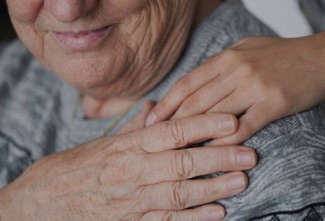End

The Last Act of a Life Well-Lived
We live in a culture that idealizes youth, seeks to make old age invisible, and privileges individual autonomy over interdependence and care for others. When these cultural traits are coupled with our healthcare system's emphasis on prolonging life, as opposed to quality of life, it is no wonder that we view death as a failure of medical treatment rather than as the last act of a life well-lived. The resources gathered here may help you reframe your sense of what it means when you or a loved one have an advanced incurable condition and a terminal prognosis.
(And Those Who Love Them):
A Practical Perspective on Death and Dying
by Sallie Tisdale
Tisdale is a poet, a Buddhist, and a palliative care nurse, and this book is a kind of manual for how to deal with one's own or a loved one's dying. It is profoundly eloquent in its directness, simplicity, and practical wisdom. It should be required reading for… well, for all future corpses and those who love them.
by Elisabeth Kübler-Ross
In this book, credited with giving rise to the hospice movement, Kübler-Ross provided a model for listening to the voices of the dying and respecting their wishes. She famously explored the five stages of dying: denial, anger, bargaining, depression, and acceptance. Originally published in 1969, On Death & Dying still challenges and inspires us, in her own words, "not to shy away from the 'hopelessly' sick but to get closer to them."
